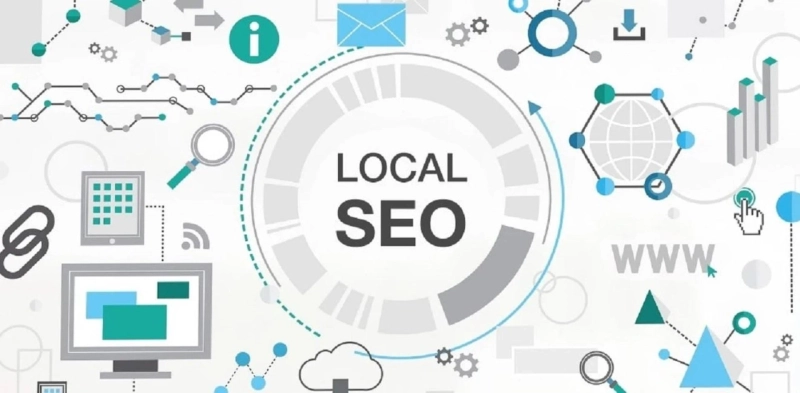Businesses need SEO to develop an online presence, attract leads, and turn those leads into sales. For brick and mortar businesses, local SEO is even more vital. Here's why: when people travel out of town, they often use Google to look for places to eat, stay, activities to do, points of interest, and so on. They look at photographs of the venues and read customer reviews to get an idea of what to expect. If you don't incorporate local SEO in your marketing strategy, you're really hurting your company. Because there is so much inaccurate information out there about local SEO, many small businesses who rely on in-house SEO management find it scary. This is especially true when it comes to citation building. There are a lot of misconceptions regarding local SEO. We'll debunk some fallacies regarding local SEO and citation building so you can advertise your company effectively. Wrong! Google My Business is one of, if not, the most important aspect of local SEO marketing. While optimizing your business’s website with keywords to compete in local search results is helpful, you need to have a verified Google My Business profile. Your Google My Business is an important piece of the citation-building puzzle. If you want a higher local SEO listing for your business, then you want to make sure your business name, address, phone number, URL, and operating hours are correct on your Google My Business profile. Absolutely untrue! If you didn’t already know, The Yellow Pages and The White Pages are online, along with many other directories that are more widely used than The Yellow Pages and The White Pages. These online directories, including Google My Business, are a huge factor for generating visibility for your business’s website. For this reason, your citations for local SEO (NAP) need to be uniformly accurate—the same on each directory. This seems to cause unnecessary panic. The fact is, Google doesn’t even factor in suite numbers. Google is more focused on your physical location—the location pin on the map—than they are about a suite number. Your street address is what’s valuable to SERP. However, if you want customers to visit the right office, it’s best to make sure your NAP matches up across all directories. Local SEO Guide conducted a study that found businesses who only use citations as their strategy for backlinking ranked low on Search Engine Results Pages or they didn’t show up at all. If you’re in a competitive market, part of your SEO marketing strategy needs to include securing links from websites with high Domain Authority. The best way to get industries to link back to your website is to reach out to authority websites and ask if you can contribute an article. A Bright Local consumer survey revealed that “86% of consumers will read reviews for local businesses” before visiting. And “57% of consumers will only use a business if it has 4 or more stars.” This means that consumers really do pay attention to reviews. Another factor to debunk this myth is Google factors in reviews for SERP. Getting reviews is absolutely necessary to your business’s local SEO strategy. Encourage your customers to leave your business review online. Provide clear instructions on how consumers can review your business. Adding visuals is a nice touch, too. This myth right here is a doozy of a myth. We live in an age where consumers can access almost anything quickly and easily. If your website is loaded too slow or worse, isn’t mobile-friendly, then you are sabotaging your own business. If a website takes longer than 3 seconds to load, it’s too slow and consumers will move on to the next website. Also, Google factors in user experience when ranking websites in SERP. If this were 1999, your website wouldn’t need to be mobile friendly for obvious reasons. But it’s 2019, and the majority of web searches are conducted on mobile devices. Google ranks mobile-friendly websites higher than those websites that are not responsive to mobile devices. A lot of local businesses will start a social media profile and then do absolutely nothing with it, thinking that its existence is all that’s necessary, but not really a big deal. This is absolutely untrue. Local SEO agencies know that having a social media platform is about more than getting Follows and Likes. Having a social media profile for your business is a way to connect with and interact with your customers. Not to mention, social media profiles are considered backlinks by Google when used properly. Make sure you add your website to your social media account. Don't allow the benefits of local SEO scare you away from taking use of them to expand your business and online presence. Just keep these myth-busting resolutions in mind. To summarize, here are a few local SEO pointers: Ensure that your local SEO citations are consistent across all platforms, directories, website pages, and social media. Make a Google My Business profile for your company as soon as possible if you don't already have one. If you need local SEO services in Arizona, we are here to help. Myth #1: You don’t need to use Google My Business.
Myth #2: You don’t need citations for your business to be visible online.
Myth #3: Not including your suite number in your citation is a huge no-no.
Myth #4: If you have citations then you don’t need backlinks.
Myth #5: People don’t really pay attention to reviews.
Myth #6: Consumers aren’t really concerned about user experience.
Myth #7: Your website doesn’t need to be mobile-friendly.
Myth #8: Social media isn’t all that important to local SEO.
8 Common Myths about Local SEO and Citation Building Debunked


